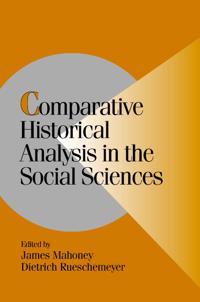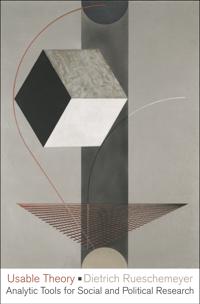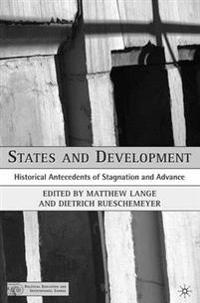Capitalist Development and Democracy (Häftad)
avDietrich Rueschemeyer
ISBN: 9780226731445 - UTGIVEN: 199204Comparative Historical Analysis in the Social Sciences (Pocket)
avJames Mahoney, Dietrich Rueschemeyer, James Mahoney
ISBN: 9780521016452 - UTGIVEN: 200310This book systematically investigates the past accomplishments and future agendas of contemporary comparative-historical analysis. Its core essays explore three major issues: the accumulation of knowledge in the field over the past three decades, the analytic tools used to study temporal process and[...]
Bringing the State Back in (Pocket)
avPeter B. Evans, Dietrich Rueschemeyer, Theda Skocpol
ISBN: 9780521313131 - UTGIVEN: 198511Until recently, dominant theoretical paradigms in the comparative social sciences did not highlight states as organizational structures or as potentially autonomous actors. Indeed, the term âstateâ was rarely used. Current work, however, increasingly views the state as an agent which, alth[...]
Usable Theory (Häftad)
avDietrich Rueschemeyer
ISBN: 9780691129594 - UTGIVEN: 200908The project of twentieth-century sociology and political science - to create predictive scientific theory - resulted in few full-scale theories that can be taken off the shelf and successfully applied to empirical puzzles. Yet focused 'theory frames' that formulate problems and point to relevant cau[...]
States and Development (Häftad)
avDietrich Rueschemeyer, Matthew Lange
ISBN: 9781403964939 - UTGIVEN: 200508This important book explores the contribution states can make to overcoming collective action problems and create collective goods favorable to social, economic, and political development. It examines how state-society relations as well as features of state structure shape the conditions under which[...]







